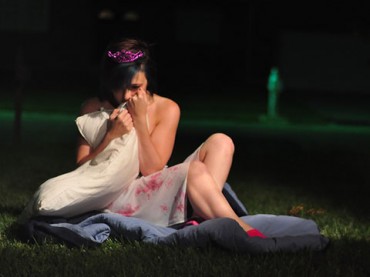
The Washington Post and Kaiser Family Foundation have a new poll on campus sexual assault that says 1 in 5 women report having been assaulted while in college.
That’s not a surprise: It’s the same finding from a 2007 study that has lost credibility in other mainstream media, and the Post itself says the polls used “questions and definitions similar to those in the 2007 study” (including “forced touching” as assault).
The survey is noteworthy for other reasons, though: Two-thirds of alleged victims said “they had been drinking alcohol just before the incidents,” while about 1 in 6 women (victims or not) “described their dating status during most of college as ‘hooking up from time to time.'”
Women who reported “they sometimes or often drink more than they should are twice as likely to be victims,” and the hookup women were also at greater risk.
There’s also a gender difference on perceptions of campus assault:
The Post-Kaiser poll found that 58 percent of men believe the share of women sexually assaulted at their school is less than 1 in 5. An identical majority of women believe the share assaulted is 1 in 5 or greater. …
Six in 10 women said it was a common attitude on their campuses that if a woman is sexually assaulted while drunk she is “at least somewhat responsible.” Nearly 6 in 10 women also said it was commonly believed that when women go to parties wearing revealing clothes, they are “asking for trouble.”
Slight majorities of men said those attitudes were not common on their campuses.
Yet the general public is far more likely to see campus sexual assault as a “big problem” – 57 percent versus just 12 percent of college students when talking about their own school, which shows the effect of alarmist media coverage on public opinion.
In followup interviews, college women described being intoxicated (knowingly or not) and only piecing together later, without the benefit of memory, that they were assaulted – saying they must have been too drunk to consent.
One interviewee said it was morally ambiguous what happened to her:
A 24-year-old woman who recently graduated from a private university in the Northeast said there were times as a student when she was so drunk that she was unable to consent to sex. She would wake up in bed with someone the next day and say to herself: “What? This is not okay. I didn’t agree to this.”
But she said the men involved might also have been too drunk. “Whether the other person had the capacity to consent either is something to take into account,” she said. “So it’s like we’re both raping each other.”
Students are in no mood to consider the ambiguity inherent in deciding guilt in a he-said, she-said situation where memory is cloudy and regret can be mistaken for assault: 85 percent “favored harsher punishments for those found guilty of sexual assault.”
Yet women in particular are determined to put punishment over a fair process:
There was a gender split on another key question: whether it is more unfair for an innocent person to get kicked out of college after a sexual-assault accusation, or for a person who commits a sexual assault to get away with it.
Men were divided, with 49 percent seeing expulsion of the innocent as the greater injustice and 42 percent taking the other side. But by a decisive 20-point margin, women viewed it as more unfair for an assailant to go unpunished.
Like The College Fix on Facebook / Follow us on Twitter
IMAGE: Courtney Carmody/Flickr






Please join the conversation about our stories on Facebook, Twitter, Instagram, Reddit, MeWe, Rumble, Gab, Minds and Gettr.